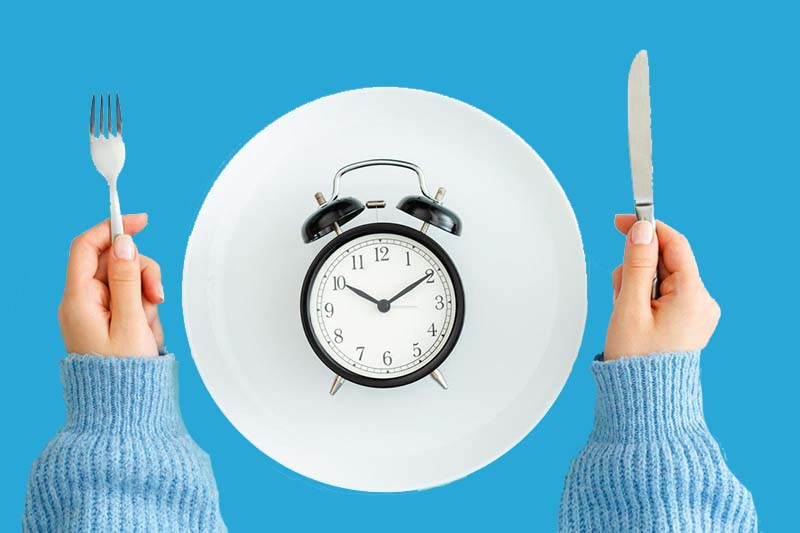Intermittent Fasting (The How, Why, What and When)

By Dr. Heather Gessling, MD
COO of Chief Medical Board for the The Wellness Company
What is Intermittent Fasting?
Intermittent fasting is one of the best ways to recover your health. There is an ease to this discipline that is unlike any other lifestyle change.
The main premise of the method is to only eat during a reduced amount of hours during the day. This includes not eating late at night or during the earlier morning hours. The most common method is to eat for an 8 hour period during the day (e.g. 11am to 7pm). This period could be reduced to 6 or even 4 hours. We were lied to for years that “breakfast is the most important meal of the day.” Maybe it is the most important meal of the day for gaining fat!
Why does it work?
The liver stores 10-12 hours of energy in the form of glycogen (less hours of energy storage available if a person is active). Our body stores this energy in preparation for a fast. If we add more fuel to our system before we go into fast mode (during sleep) then we don’t burn through those energy reserves as readily. Once we are past the 10-12 hour mark our body starts burning through stored energy in the form of fat.
Why Is It Good For Us?
With our body freed up from doing the work of digestion it is able to go do all the other things it wants to do at night. It wants to heal our body, heal our brain. It wants to get rid of old cells and cancer cells. It wants to rejuvenate. It cannot do these things when it is tasked with digesting food that is eaten right before sleep. Autophagy is the process that occurs when our body destroys old cells. Autophagy is amazing. Intermittent fasting allows for full focus on this process.
This video does a good job of explaining Autophagy and the health benefits from intermittent fasting:
What Can I Eat During the Eating Period?
Unprocessed, whole foods. No vegetable oils. No refined sugar or carbs. No artificially sweetened foods or drinks. What does this leave? Organic fruits and vegetables, meat, particularly grass-fed and unprocessed and healthy, natural cheeses. Little to no breads or processed carbs. Turn the food pyramid upside down!
What Does Intermittent Fasting Help Cure?
- Type 2 diabetes: The less insulin release the better. Essentially every meal will produce insulin release. By only eating two meals a day within an 8 hour period, insulin release is dramatically reduced during a 24 hour period and insulin sensitivity increases. Since fasting helps burn fat and produce weight loss this leads to healing of the toxic process (from abdominal fat) leading to type 2 diabetes.
- Hypertension: Losing weight and reducing inflammatory foods will help reverse a hypertension diagnosis.
- Hyperlipidemia: Losing weight, reducing inflammatory foods, and reducing insulin resistance will improve cholesterol levels
- Fatty liver: Weight loss is the main driver of improvement
- Metabolic syndrome: All of the above notations
- Obesity: Dramatic reductions in weight using intermittent fasting can be achieved over the course of several months or years. It is not a quick fix but immediate results in blood sugar readings, blood pressure readings, and a reduction in medication usage can occur. Coupling it with other 24 hour fasts can be done, e.g. 500 calories or less in a 24 hour period.
- Inflammatory disorders: allowing for the body to do its job of healing overnight is crucial. Autophagy is important. Autophagy also works on cancerous cells.
What else can it do?
Improve memory and verbal skills! Who doesn’t want that?
Who should not do intermittent fasting?
- Children and teenagers
- Pregnant or breastfeeding mothers
- Patients who are on insulin
- Patients with a history of eating disorders
At The Wellness Company the entire Medical Team sees intermittent fasting as one of the most crucial tools in maintaining or regaining health. We strongly encourage you to work your way up to a significant fasting window if this method is not contraindicated for you as listed above.
- - - - - - - - - - - - - - - - - - - - - - - - - - - - - - - - - -
About the Author:
Dr. Heather Gessling, MD is a family medicine specialist in Columbia, MO. She currently practices at MMG Family Medicine and is affiliated with Ellis Fischel Cancer Center. She accepts multiple insurance plans. Dr. Gessling is board certified in Family Practice. She is on the Chief Medical Board of The Wellness Company founded in 2022.
Education: University Of Missouri-Columbia School Of Medicine




